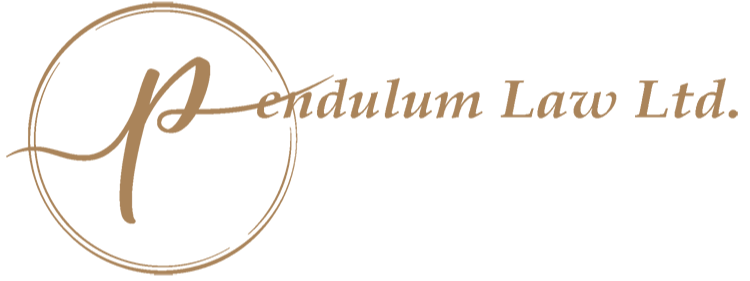
Exploring the Landscape of Human Rights Cases Impacting Canadian Schools
Sep 20, 2025Anna Zadunayski, BA, LLB, MSc,
Barrister & Solicitor, Ethicist
Calgary, Alberta
In May 2024, Donna Reid and I started Pendulum Law Ltd., a legal publishing firm surveying education law cases, identifying and documenting trends related to Canadian schools and universities law, and disseminating important and timely information within the education law community. We aim to update educational leaders and professionals on new legal developments, emphasizing practical implications and applications for professional practice. When the BCPVPA suggested an article related to human rights in the educational setting, we knew there was no shortage of recent cases to draw upon. We acknowledge that all human rights cases involve the lived experiences of others, and we respect and appreciate the knowledge gained from the trials of others.
Provincial Human Rights Legislation
In Canada, provincial human rights legislation prohibits discrimination in the provision of educational services on the basis of race, colour, ethnicity, place of origin, religion, marital or family status, physical or mental disability, sex, gender, sexual orientation, age or class. This applies to public schools, independent schools, colleges and universities.
In British Columbia, where a concern or complaint is not resolved at a school, district or Ministerial level, a person may file a human rights complaint with the British Columbia Human Rights Tribunal (BCHRT), alleging discrimination under the B.C. Human Rights Code, RSBC 1996, c 210 (the Code). Where a complaint involves a child, the complaint is typically filed by a parent or guardian. Only in very specific circumstances will a human rights complaint in the educational setting fall under the ambit of the Canadian Charter of Rights and Freedoms.
Human rights complaints are presumptively public. Once filed, human rights complaints at the tribunal or court level, like other litigation, become a matter of the public record. While tribunals may grant an anonymization order or publication ban regarding minor students and individual educators (pending the outcome of the case), there is less willingness to do so for schools and districts (Child K and another v. Queen of All Saints School, 2024 BCHRT 150).
Recent Human Rights Cases Impacting Schools
In the past year, there have been several human rights cases involving teachers, administrators and schools in Canada. Among other things, topics have included teacher privacy (Ontario), private prayer space for students (Alberta), differential treatment in denial of re-enrollment (Ontario), and reasonable accommodations for students with disabilities (BC). Legal outcomes depend on the specific facts and legislative framework for each case.
In Webber Academy Foundation v. Alberta (Human Rights Commission), 2024 CanLII 22674 (appeal from 2023 ABCA 194) the Supreme Court of Canada denied leave to appeal a decision of the Alberta Human Rights Commission that failing to provide students with access to quiet, private prayer space at school was discrimination on the basis of religion. In that case, which ultimately took more than 12 years to resolve through the legal system, the Commission awarded each of the students (who had not attended the school for over a decade) $18,000 in damages, along with other systemic remedies.
In S.R. v. Matthews Hall, 2024 HRTO 680, the Human Rights Tribunal of Ontario held that failing to provide sibling students with a re-enrollment package (denying school re-enrollment) was discrimination on the basis of race and ethnicity contrary to the Human Rights Code, R.S.O. 1990, c. H. 19. In addition to public interest remedies – more on this later – the school was ordered to pay $75,000 in compensation for injury to dignity, feeling and self-respect, with interest in accordance with the Courts of Justice Act, RSO 1990, c C.43. The HRTO also held the principal personally responsible for his part in the discriminatory conduct – he was ordered to pay an additional $20,000, in part, for refusing to meet with the family.
More recently and closer to home, is the case of Child K, which is ongoing. In that case, a parent filed a complaint with the BCHRT alleging that her child’s school had failed to meet the child’s disability-related needs. The parent later added herself as a complainant, alleging that she was adversely impacted by the school’s failure to accommodate her child’s disabilities, constituting discrimination based on family status (Independent School Authority v. Parent, 2022 BCSC 570). The case has been permitted to proceed to a full human rights hearing for a decision on the merits.
What About the Canadian Charter of Rights and Freedoms?
The vast majority of human rights cases are navigated at the provincial level. Cases invoking the Canadian Charter of Rights and Freedoms (the Charter) are more limited, as the Charter applies to entities which are considered an extension of government (Eldridge v. British Columbia (Attorney General), [1997] 3 S.C.R.). Where an entity is found to be “government”, the Charter applies to its actions.
In York Region District School Board, a recent workplace privacy case involving two elementary school teachers, the Supreme Court of Canada held that the Charter applied to Ontario public school boards, with the caveat that each case depends upon its specific factual and statutory context (York Region District School Board v. Elementary Teachers’ Federation of Ontario, 2024 SCC 22. A principal took screenshots of a private Google Doc and used them in subsequent reprimands, which was found to be an invasion of the teachers’ privacy contrary to section 8 of the Charter: the right to be secure against unreasonable search or seizure in the workplace.
The teachers were instructed by their union to keep notes of workplace concerns and had a reasonable expectation of privacy in the Google Doc, given that it was stored in the cloud and not a school board server. The union grieved the reprimands, requesting damages for breach of privacy.
The case went to the Supreme Court of Canada, providing an opportunity for the Court to determine Charter applicability to Ontario public school boards. A review of the Education Act, RSO 1990, c E.2., confirmed that Ontario public school boards are government by nature and therefore subject to the Charter. The Court held that actions carried on by Ontario public school boards are subject to Charter scrutiny, including the principal’s actions in this case, as he acted in his official capacity as an agent of the Board – a statutory delegate – and not in his personal capacity.
Not all jurisdictions have legislation identical to Ontario’s Education Act, so the case is not a blanket precedent. The Supreme Court carefully cautioned that whether or not the Charter applies to Canadian public school boards depends upon the specific factual and statutory context of each case. However, the facts of the case were straightforward and could have happened anywhere. The decision serves as an authority for the legal proposition that where public school boards are an arm of government, exercising powers conferred upon them by a provincial legislature (powers and functions the legislature would otherwise have to perform), there is a strong likelihood that Charter rights and freedoms (and correlating responsibilities) will apply. Public school boards should take this decision seriously, and use it to inform their conduct.
Monetary Awards, Public Interest & Systemic Remedies
The usual remedy for a human rights breach – such as discrimination or invasion of privacy – is an award of monetary damages, intended to restore a person to the position they would have been in had the breach not occurred. A monetary award provides compensation for intrinsic harm – injury to feelings, dignity and self-respect – caused by discriminatory conduct (Arunachalam v. Best Buy Canada, 2010 HRTO 1880), recognizing that human rights have intrinsic value independent of actual monetary or personal losses suffered by an individual.
In rare cases where it is not possible for the legal system to make a person “whole” through a damages award, a public interest remedy or systemic remedy may be ordered. Typically in addition to a monetary award, a systemic remedy may include measures intended to address the systemic “root cause” of the discrimination, prevent it from happening in the future, and promote the purposes of human rights legislation.
In Webber Academy the Alberta Human Rights Commission ordered the school to refrain from future contraventions of the Alberta Human Rights Act, RSA 2000, c A-25.5, and also ordered a representative of the school’s administration to attend or subscribe to an educational program on the duty to accommodate.
Similarly, in Matthews Hall, the school was ordered to hire, at its own expense, a recognized human rights expert to conduct a human rights audit and provide in-depth human rights, diversity, equity and inclusion training to the School’s Board of Governors and all administration, teachers and staff. The audit had to include a review of the school’s communication policies, procedures and contingency plans, together with an assessment of whether the school required a social worker for community support and counselling services for students and staff. Matthews Hall was also ordered to hire, at its own expense, an independent expert in leadership and communication, to provide leadership, conflict resolution and communication skills training for senior administration and the Chair of the Board, providing confirmation of completion of the mandated audit and training within 60 days of completion.
Additionally, in a recent but already much-cited case, the Human Rights Tribunal of Ontario mandated a university admissions pilot project for students with disabilities, impacting the postsecondary admissions landscape in Ontario and elsewhere (Longueépée v. University of Waterloo, 2024 HRTO 707). In that case, a student made a human rights complaint based upon his experience of the university admissions process, alleging discrimination with respect to educational services because of disability, contrary to the Human Rights Code, R.S.O 1990, c. H.19. Given the passage of some 11 years in that case – owing in part to the legal process – the complainant no longer sought university admission. Instead, he sought systemic change, so that others in similar circumstances could rely upon an enabling admissions process with accommodations if needed.
Why is an exploration of recent human rights cases important?
These cases were selected and shared to cultivate awareness and learning from the experiences of others. It is important for educational leaders to have a basic understanding of the implications of human rights legislation on the education system, including the fundamental categories and grounds for discrimination, together with the duty of reasonable accommodation to the point of undue hardship. An awareness of the rights and responsibilities of stakeholders – students, teachers and administrators – will lead to good decisions, enhanced professional practice and promotion of the fundamental purposes of human rights legislation. Creating quality educational environments is not easy in an increasingly complex and demanding world, but basic knowledge of human rights legislation and processes will promote inclusive, accommodating environments, which are happier learning spaces for all.
_________________
Anna Zadunayski BA, LLB, MSc, is a Calgary-based lawyer, ethicist, researcher, writer and editor. Anna is a founding partner of Pendulum Law Ltd., a legal publishing firm and education law resource hub. A research associate and preceptor at the University of Calgary, Anna was a regular contributor to the Post-Secondary Law Reporter, formerly published by Education Law InfoSource Ltd. (surveying jurisprudence and identifying and documenting trends relating to Canadian universities law). A busy mother of three high-performance student athletes, Anna is the President of Killarney Swim Club, a community-based competitive swimming club for youth of all ages.

